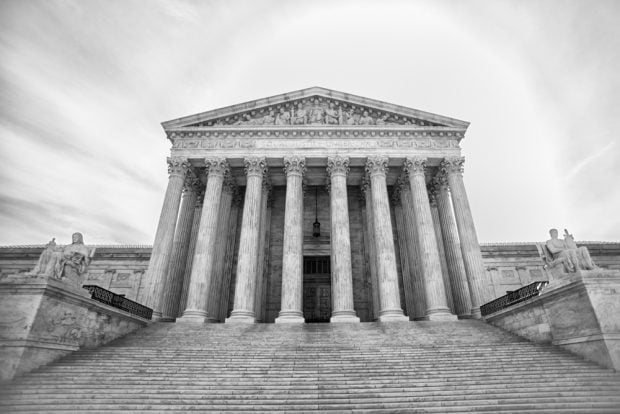 U.S. Supreme Court. (Source: Shutterstock)
U.S. Supreme Court. (Source: Shutterstock)
The association representing community development credit unions and two of its members asked the Supreme Court to uphold the current structure of the CFPB, in sharp contrast with other credit union trade groups that oppose it.
INCLUSIV, the association, as well as Self-Help Credit Union and the Hope Credit Union, have filed a brief with the court, saying the current one-director structure of the agency helps ensure that the agency does not simply consider the needs of institutions with political connections in Washington.
Recommended For You
"The CFPB's design both prevents regulatory capture and provides accountability in the CFPB's efforts to protect consumers by vigorously enforcing the law," the association and credit unions said.
They went on to say, "By contrast, a CFPB stripped of its independence is more apt to subject financial institutions to the cost and uncertainty associated with shifting political winds."
Seila Law, a law firm, filed suit challenging the structure and the Supreme Court has agreed to hear the case, with oral arguments scheduled for March 3.
Under President Obama, the agency defended its current structure, but current CFPB Director Kathy Kraninger has joined the Trump Administration in saying the agency is illegally constituted.
As a result, the court has asked former Solicitor General Paul Clement to present an argument defending the agency.
Many others on either side of the issue, including members of Congress, have also filed briefs in the case.
In its brief, CUNA asked the court to void the agency's structure and then issue a stay of its order to allow Congress to enact legislation to create a commission to run the agency.
"The Bureau clearly wields vast power to regulate financial and consumer-protection laws," CUNA said. "But the most troubling aspect is the unchecked nature of that power."
NAFCU also favors converting the agency into a commission.
However, INCLUSIV and the two credit unions said the current structure of the agency is "critical to ensuring that it can carry out its consumer protection mission free from undue political and industry influence."
Hope Credit Union is headquartered in Jackson, Ms., and has assets of about $307 million, while Self-Help is headquartered in Durham, N.C., and has assets of more than $500 million.
© Touchpoint Markets, All Rights Reserved. Request academic re-use from www.copyright.com. All other uses, submit a request to [email protected]. For more inforrmation visit Asset & Logo Licensing.






